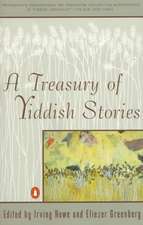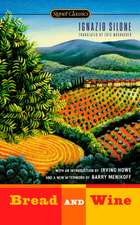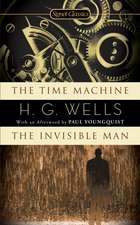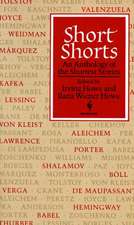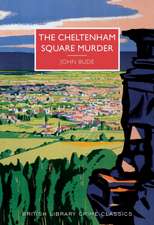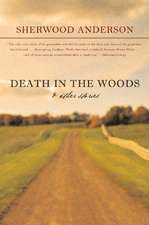Winesburg, Ohio
Autor Sherwood Andersonen Limba Engleză Paperback – 12 apr 2012
| Toate formatele și edițiile | Preț | Express |
|---|---|---|
| Paperback (22) | 31.87 lei 3-5 săpt. | +5.03 lei 7-13 zile |
| Bantam Classics – 28 feb 1995 | 31.87 lei 3-5 săpt. | +5.03 lei 7-13 zile |
| Penguin Random House Group – 25 noi 2009 | 39.80 lei 3-5 săpt. | |
| Oxford University Press – 12 iun 2008 | 42.70 lei 10-16 zile | +15.60 lei 7-13 zile |
| Penguin Books – 27 ian 1993 | 42.70 lei 26-32 zile | |
| CREATESPACE – | 48.27 lei 3-5 săpt. | |
| West Margin Press – 9 dec 2020 | 51.10 lei 3-5 săpt. | |
| Vintage Publishing – 3 iul 2013 | 57.55 lei 26-32 zile | +19.43 lei 7-13 zile |
| KUPERARD (BRAVO LTD) – 2000 | 58.10 lei 3-5 săpt. | +9.43 lei 7-13 zile |
| Alma Books COMMIS – 12 apr 2012 | 61.78 lei 3-5 săpt. | |
| CREATESPACE – | 69.73 lei 3-5 săpt. | |
| CREATESPACE – | 71.20 lei 3-5 săpt. | |
| Penguin Books – 31 iul 1996 | 183.02 lei 3-5 săpt. | |
| Digireads.com – 31 dec 2004 | 54.08 lei 6-8 săpt. | |
| CREATESPACE – | 64.87 lei 6-8 săpt. | |
| CREATESPACE – | 71.09 lei 6-8 săpt. | |
| Martino Fine Books – 26 sep 2020 | 99.56 lei 38-44 zile | |
| Echo Library – 30 iun 2008 | 104.44 lei 38-44 zile | |
| Aegypan Press – 30 sep 2005 | 105.66 lei 6-8 săpt. | |
| Book Jungle – 12 mar 2008 | 131.64 lei 6-8 săpt. | |
| Simon & Brown – 21 oct 2018 | 132.71 lei 38-44 zile | |
| Ellott Press – 7 iul 2008 | 158.37 lei 6-8 săpt. | |
| Kessinger Publishing – 10 mai 2009 | 202.18 lei 38-44 zile | |
| Hardback (5) | 95.27 lei 3-5 săpt. | +12.68 lei 7-13 zile |
| Mint Editions – 24 noi 2020 | 95.27 lei 3-5 săpt. | +12.68 lei 7-13 zile |
| Touchladybirdlucky Studios – 18 iul 2023 | 135.75 lei 6-8 săpt. | |
| INDY PUB – 2003 | 149.12 lei 6-8 săpt. | |
| – | 165.02 lei 38-44 zile | |
| Simon & Brown – 21 oct 2018 | 184.55 lei 38-44 zile |
Preț: 61.78 lei
Nou
Puncte Express: 93
Preț estimativ în valută:
11.82€ • 12.34$ • 9.78£
11.82€ • 12.34$ • 9.78£
Carte disponibilă
Livrare economică 15-29 martie
Preluare comenzi: 021 569.72.76
Specificații
ISBN-13: 9781847492166
ISBN-10: 1847492169
Pagini: 208
Dimensiuni: 128 x 198 x 197 mm
Greutate: 0.23 kg
Editura: Alma Books COMMIS
Colecția Alma Classics
Locul publicării:London, United Kingdom
ISBN-10: 1847492169
Pagini: 208
Dimensiuni: 128 x 198 x 197 mm
Greutate: 0.23 kg
Editura: Alma Books COMMIS
Colecția Alma Classics
Locul publicării:London, United Kingdom
Notă biografică
The son of a day labourer, Sherwood Anderson (1876-1941), spent his youth and early adulthood working in various jobs across the Midwest, before devoting himself to fiction. He went on to become one of the most influential writers of the early twentieth century, notably for his short stories.
Recenzii
The father of my generation of American writers and the tradition of American writing which our successors will carry on.
Descriere
Portraying the characters and events of a small Midwestern town at the end of the nineteenth century, Winesburg, Ohio is a chronological cycle of stories which reads like an episodic novel. Centring on George Willard, a young local reporter with big-city aspirations, and his conversations with fellow inhabitants, the book gives voice to a disparate cast of figures and lays bare the constraints and struggles of life in a small community. A landmark work of American naturalism and a priceless chronicle of rural life, Winesburg, Ohio has been compared to the writings of Turgenev, Chekhov, Dreiser and Twain, and hugely influenced authors such as Steinbeck, Hemingway and Faulkner.
Extras
The writer, an old man with a white mustache, had some difficulty in getting into bed. The windows of the house in which he lived were high and he wanted to look at the trees when he awoke in the morning. A carpenter came to fix the bed so that it would be on a level with the window.
Quite a fuss was made about the matter. The carpenter, who had been a soldier in the Civil War, came into the writer's room and sat down to talk of building a platform for the purpose of raising the bed. The writer had cigars lying about and the carpenter smoked.
For a time the two men talked of the raising of the bed and then they talked of other things. The soldier got on the subject of the war. The writer, in fact, led him to that subject. The carpenter had once been a prisoner in Andersonville prison and had lost a brother. The brother had died of starvation, and whenever the carpenter got upon that subject he cried. He, like the old writer, had a white mustache, and when he cried he puckered up his lips and the mustache bobbed up and down. The weeping old man with the cigar in his mouth was ludicrous. The plan the writer had for the raising of his bed was forgotten and later the carpenter did it in his own way and the writer, who was past sixty, had to help himself with a chair when he went to bed at night.
In his bed the writer rolled over on his side and lay quite still. For years he had been beset with notions concerning his heart. He was a hard smoker and his heart fluttered. The idea had got into his mind that he would some time die unexpectedly and always when he got into bed he thought of that. It did not alarm him. The effect in fact was quite a special thing and not easily explained. It made him more alive, there in bed, than at any other time. Perfectly still he lay and his body was old and not of much use any more, but something inside him was altogether young. He was like a pregnant woman, only that the thing inside him was not a baby but a youth. No, it wasn't a youth, it was a woman, young, and wearing a coat of mail like a knight. It is absurd, you see, to try to tell what was inside the old writer as he lay on his high bed and listened to the fluttering of his heart. The thing to get at is what the writer, or the young thing within the writer, was thinking about.
The old writer, like all of the people in the world, had got, during his long life, a great many notions in his head. He had once been quite handsome and a number of women had been in love with him. And then, of course, he had known people, many people, known them in a peculiarly intimate way that was different from the way in which you and I know people. At least that is what the writer thought and the thought pleased him. Why quarrel with an old man concerning his thoughts?
In the bed the writer had a dream that was not a dream. As he grew somewhat sleepy but was still conscious, figures began to appear before his eyes. He imagined the young indescribable thing within himself was driving a long procession of figures before his eyes.
You see the interest in all this lies in the figures that went before the eyes of the writer. They were all grotesques. All of the men and women the writer had ever known had become grotesques.
The grotesques were not all horrible. Some were amusing, some almost beautiful, and one, a woman all drawn out of shape, hurt the old man by her grotesqueness. When she passed he made a noise like a small dog whimpering. Had you come into the room you might have supposed the old man had unpleasant dreams or perhaps indigestion.
For an hour the procession of grotesques passed before the eyes of the old man, and then, although it was a painful thing to do, he crept out of bed and began to write. Some one of the grotesques had made a deep impression on his mind and he wanted to describe it.
At his desk the writer worked for an hour. In the end he wrote a book which he called 'The Book of the Grotesque.' It was never published, but I saw it once and it made an indelible impression on my mind. The book had one central thought that is very strange and has always remained with me. By remembering it I have been able to understand many people and things that I was never able to understand before. The thought was involved but a simple statement of it would be something like this:
That in the beginning when the world was young there were a great many thoughts but no such thing as a truth. Man made the truths himself and each truth was a composite of a great many vague thoughts. All about in the world were the truths and they were all beautiful.
The old man had listed hundreds of the truths in his book. I will not try to tell you of all of them. There was the truth of virginity and the truth of passion, the truth of wealth and of poverty, of thrift and of profligacy, of carelessness and abandon. Hundreds and hundreds were the truths and they were all beautiful.
And then the people came along. Each as he appeared snatched up one of the truths and some who were quite strong snatched up a dozen of them.
It was the truths that made the people grotesques. The old man had quite an elaborate theory concerning the matter. It was his notion that the moment one of the people took one of the truths to himself, called it his truth, and tried to live his life by it, he became a grotesque and the truth he embraced became a falsehood.
You can see for yourself how the old man, who had spent all of his life writing and was filled with words, would write hundreds of pages concerning this matter. The subject would become so big in his mind that he himself would be in danger of becoming a grotesque. He didn't, I suppose, for the same reason that he never published the book. It was the young thing inside him that saved the old man.
Concerning the old carpenter who fixed the bed for the writer, I only mentioned him because he, like many of what are called very common people, became the nearest thing to what is understandable and lovable of all the grotesques in the writer's book.
Quite a fuss was made about the matter. The carpenter, who had been a soldier in the Civil War, came into the writer's room and sat down to talk of building a platform for the purpose of raising the bed. The writer had cigars lying about and the carpenter smoked.
For a time the two men talked of the raising of the bed and then they talked of other things. The soldier got on the subject of the war. The writer, in fact, led him to that subject. The carpenter had once been a prisoner in Andersonville prison and had lost a brother. The brother had died of starvation, and whenever the carpenter got upon that subject he cried. He, like the old writer, had a white mustache, and when he cried he puckered up his lips and the mustache bobbed up and down. The weeping old man with the cigar in his mouth was ludicrous. The plan the writer had for the raising of his bed was forgotten and later the carpenter did it in his own way and the writer, who was past sixty, had to help himself with a chair when he went to bed at night.
In his bed the writer rolled over on his side and lay quite still. For years he had been beset with notions concerning his heart. He was a hard smoker and his heart fluttered. The idea had got into his mind that he would some time die unexpectedly and always when he got into bed he thought of that. It did not alarm him. The effect in fact was quite a special thing and not easily explained. It made him more alive, there in bed, than at any other time. Perfectly still he lay and his body was old and not of much use any more, but something inside him was altogether young. He was like a pregnant woman, only that the thing inside him was not a baby but a youth. No, it wasn't a youth, it was a woman, young, and wearing a coat of mail like a knight. It is absurd, you see, to try to tell what was inside the old writer as he lay on his high bed and listened to the fluttering of his heart. The thing to get at is what the writer, or the young thing within the writer, was thinking about.
The old writer, like all of the people in the world, had got, during his long life, a great many notions in his head. He had once been quite handsome and a number of women had been in love with him. And then, of course, he had known people, many people, known them in a peculiarly intimate way that was different from the way in which you and I know people. At least that is what the writer thought and the thought pleased him. Why quarrel with an old man concerning his thoughts?
In the bed the writer had a dream that was not a dream. As he grew somewhat sleepy but was still conscious, figures began to appear before his eyes. He imagined the young indescribable thing within himself was driving a long procession of figures before his eyes.
You see the interest in all this lies in the figures that went before the eyes of the writer. They were all grotesques. All of the men and women the writer had ever known had become grotesques.
The grotesques were not all horrible. Some were amusing, some almost beautiful, and one, a woman all drawn out of shape, hurt the old man by her grotesqueness. When she passed he made a noise like a small dog whimpering. Had you come into the room you might have supposed the old man had unpleasant dreams or perhaps indigestion.
For an hour the procession of grotesques passed before the eyes of the old man, and then, although it was a painful thing to do, he crept out of bed and began to write. Some one of the grotesques had made a deep impression on his mind and he wanted to describe it.
At his desk the writer worked for an hour. In the end he wrote a book which he called 'The Book of the Grotesque.' It was never published, but I saw it once and it made an indelible impression on my mind. The book had one central thought that is very strange and has always remained with me. By remembering it I have been able to understand many people and things that I was never able to understand before. The thought was involved but a simple statement of it would be something like this:
That in the beginning when the world was young there were a great many thoughts but no such thing as a truth. Man made the truths himself and each truth was a composite of a great many vague thoughts. All about in the world were the truths and they were all beautiful.
The old man had listed hundreds of the truths in his book. I will not try to tell you of all of them. There was the truth of virginity and the truth of passion, the truth of wealth and of poverty, of thrift and of profligacy, of carelessness and abandon. Hundreds and hundreds were the truths and they were all beautiful.
And then the people came along. Each as he appeared snatched up one of the truths and some who were quite strong snatched up a dozen of them.
It was the truths that made the people grotesques. The old man had quite an elaborate theory concerning the matter. It was his notion that the moment one of the people took one of the truths to himself, called it his truth, and tried to live his life by it, he became a grotesque and the truth he embraced became a falsehood.
You can see for yourself how the old man, who had spent all of his life writing and was filled with words, would write hundreds of pages concerning this matter. The subject would become so big in his mind that he himself would be in danger of becoming a grotesque. He didn't, I suppose, for the same reason that he never published the book. It was the young thing inside him that saved the old man.
Concerning the old carpenter who fixed the bed for the writer, I only mentioned him because he, like many of what are called very common people, became the nearest thing to what is understandable and lovable of all the grotesques in the writer's book.
Cuprins
Winesburg, Ohio Preface to the First Edition
Preface to the Revised Edition
Chronology
Anderson on Winesburg, Ohio (from his Memoirs and Letters): Language and Form / Winesburg and Its People / Reception
I. Winesburg, Ohio: The Text
A Note on the Text, by Malcolm Cowley
II. The Reviewers
The New Republic, June 25, 1919: M. A.
The Chicago Evening Post, June 20, 1919: LLEWELLYN JONES
Smart Set, August 1919: H. L. MENCKEN
The Bookman, August 1919: H. W. BOYNTON
The Springfield Republican, July 20, 1919
The New Statesman, July 22, 1922: REBECCA WEST
III. The Critics
WILLIAM L. PHILLIPS, How Sherwood Anderson Wrote Winesburg, Ohio
WALTER B. RIDEOUT, The Simplicity of Winesburg, Ohio
JARVIS A. THURSTON, Technique in Winesburg, Ohio
ROGER ASSELINEAU, Language and Style in Sherwood Anderson's Winesburg, Ohio
MALCOLM COWLEY, Introduction to Winesburg, Ohio
WALDO FRANK, Winesburg, Ohio After Twenty Years
JOHN S. REIST, JR., An Ellipse Becomes a Circle: The Developing Unity of Winesburg, Ohio
EDWIN FUSSELL, Winesburg, Ohio: Art and Isolation
DAVID STOUCK, Winesburg, Ohio as a Dance of Death
IRVING HOWE, The Book of the Grotesque
CHARLES CHILD WALCUTT, Naturalism in Winesburg, Ohio
EILEEN BALDESHWILER, Sherwood Anderson and the Lyric Story
SALLY ADAIR RIGSBEE, The Feminine in Winesburg, Ohio
MARTIN BIDNEY, Anderson and the Androgyne: "Something More Than Man or Woman"
JOHN H. FERRES, The Nostalgia of Winesburg, Ohio
LIONEL TRILLING, Sherwood Anderson
E. SAN JUAN, JR., Vision and Reality: A Reconsideration of Sherwood Anderson's Winesburg, Ohio
JOHN T. FLANAGAN, Hemingway's Debt to Sherwood Anderson
WILLIAM FAULKNER, Sherwood Anderson: An Appreciation
Topics for Discussion and Papers
Bibliography
Preface to the Revised Edition
Chronology
Anderson on Winesburg, Ohio (from his Memoirs and Letters): Language and Form / Winesburg and Its People / Reception
I. Winesburg, Ohio: The Text
A Note on the Text, by Malcolm Cowley
II. The Reviewers
The New Republic, June 25, 1919: M. A.
The Chicago Evening Post, June 20, 1919: LLEWELLYN JONES
Smart Set, August 1919: H. L. MENCKEN
The Bookman, August 1919: H. W. BOYNTON
The Springfield Republican, July 20, 1919
The New Statesman, July 22, 1922: REBECCA WEST
III. The Critics
WILLIAM L. PHILLIPS, How Sherwood Anderson Wrote Winesburg, Ohio
WALTER B. RIDEOUT, The Simplicity of Winesburg, Ohio
JARVIS A. THURSTON, Technique in Winesburg, Ohio
ROGER ASSELINEAU, Language and Style in Sherwood Anderson's Winesburg, Ohio
MALCOLM COWLEY, Introduction to Winesburg, Ohio
WALDO FRANK, Winesburg, Ohio After Twenty Years
JOHN S. REIST, JR., An Ellipse Becomes a Circle: The Developing Unity of Winesburg, Ohio
EDWIN FUSSELL, Winesburg, Ohio: Art and Isolation
DAVID STOUCK, Winesburg, Ohio as a Dance of Death
IRVING HOWE, The Book of the Grotesque
CHARLES CHILD WALCUTT, Naturalism in Winesburg, Ohio
EILEEN BALDESHWILER, Sherwood Anderson and the Lyric Story
SALLY ADAIR RIGSBEE, The Feminine in Winesburg, Ohio
MARTIN BIDNEY, Anderson and the Androgyne: "Something More Than Man or Woman"
JOHN H. FERRES, The Nostalgia of Winesburg, Ohio
LIONEL TRILLING, Sherwood Anderson
E. SAN JUAN, JR., Vision and Reality: A Reconsideration of Sherwood Anderson's Winesburg, Ohio
JOHN T. FLANAGAN, Hemingway's Debt to Sherwood Anderson
WILLIAM FAULKNER, Sherwood Anderson: An Appreciation
Topics for Discussion and Papers
Bibliography

